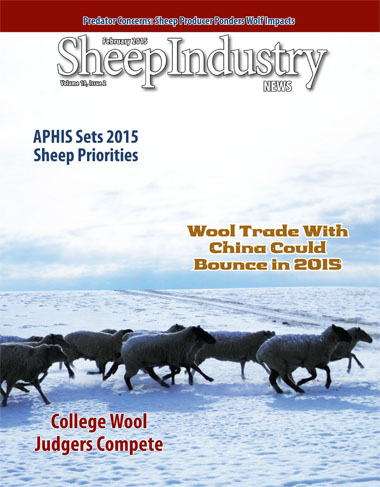Study: No Harm to Canada in COOL
A new study by an Auburn University agricultural economist refutes claims from Canadian cattlemen that county-of-origin-labeling has hurt Canadian meat producers in the U.S. market. “The United States Mandatory Country-of-Origin Labeling (COOL) regime has not impaired cattle export market access to the United States,” writes C. Robert Taylor in a research report prepared for the National Farmers Union, which supports country-of-origin labeling for meat, or COOL. Canada has contested the law with the World Trade Organization, saying it’s an unfair trade restriction that has impeded the sale of Canadian meat in the U.S. Taylor said his study refutes that claim.
Ohio Program Offering Scholarship
The Ohio Sheep and Wool Program is offering two scholarships to Ohio sheep, lamb, and wool producers to attend the Howard Wyman Sheep Industry Leadership School on June 21-14 in Denver. The program is offering this scholarship as part of their Young Entrepreneurs Education Program. Qualifications to obtain the scholarship include being a current Ohio sheep producer, and contributing to the Ohio Sheep and Wool Program. Those interested should contact Roger A. High at (614) 246-8299 or by email at [email protected] to receive a scholarship application.
Sheep Could Help Fight Disease
A nervous system disorder in sheep might someday help people who suffer from Huntington’s disease. If research is approved, there could be a need for an additional 75,000 ewes each year to provide a potential treatment used to treat patients with the disease. Larry and Sue Holler of White, South Dakota, spoke at the Dakota Lamb Growers Cooperative annual meeting in Aberdeen. Larry Holler, a veterinarian, founded Glycoscience Research Inc. more than two decades ago and maintain a flock of sheep that has a genetic trait that could eventually help combat not only Huntington’s, but Parkinson’s disease, too. The Hollers’ 400 sheep carry what’s called GM1 gangliosidosis, an inherited disease that progressively destroys nerve cells in the brain and spinal cord. A Food and Drug Administration pre-investigative meeting was set for January. A clinical trial could be in going by late 2015.
USDA Funding Beginning Ranchers
USDA Deputy Secretary Krysta Harden announced the availability of more than $18 million in funding to help educate, mentor and enhance the sustainability of the next generation of farmers. This support is available through the Beginning Farmer and Rancher Development Program (BFRDP). Fiscal Year 2015 applications for BFRDP are due March 13. Funding for BFRDP program is authorized by the 2014 Farm Bill. Additional information is available at www.nifa.usda.gov/fo/beginningfarmersandranchers.cfm.


